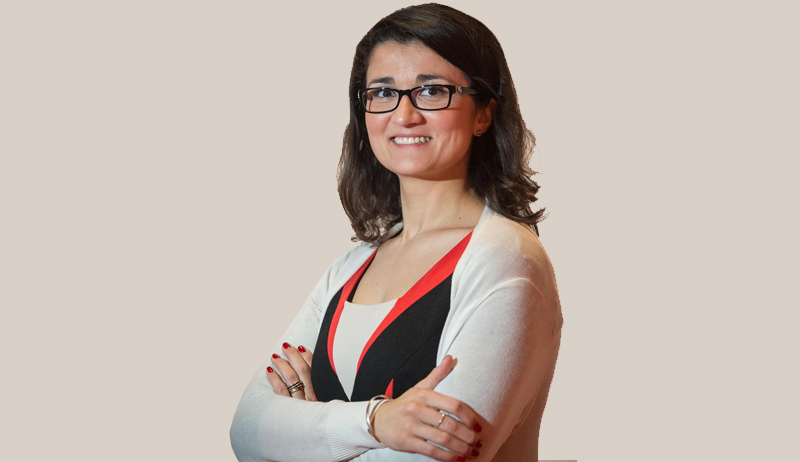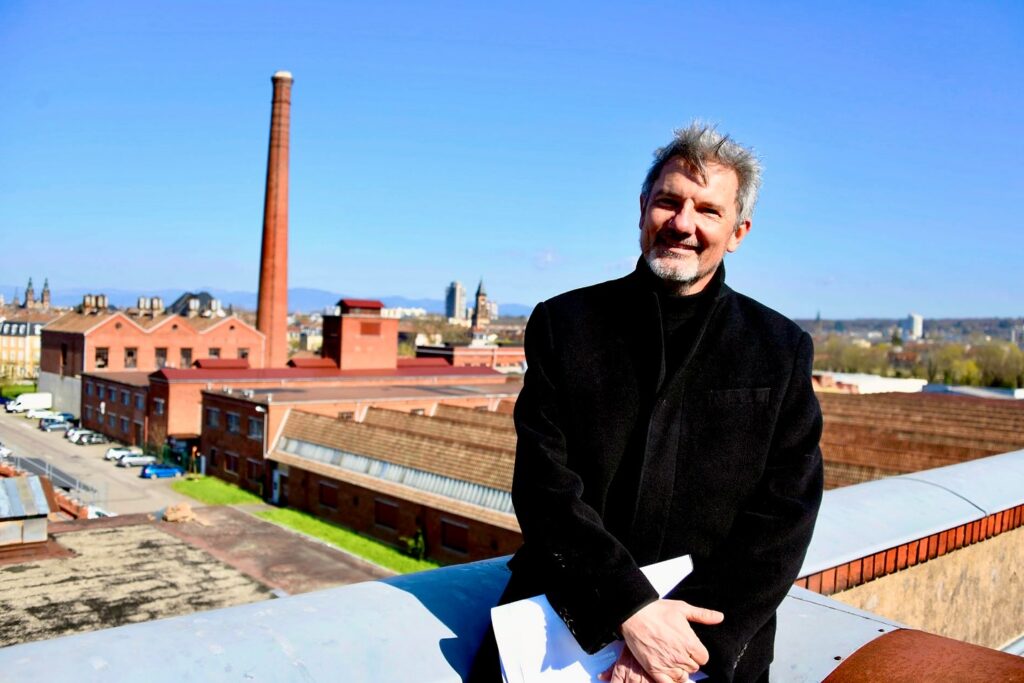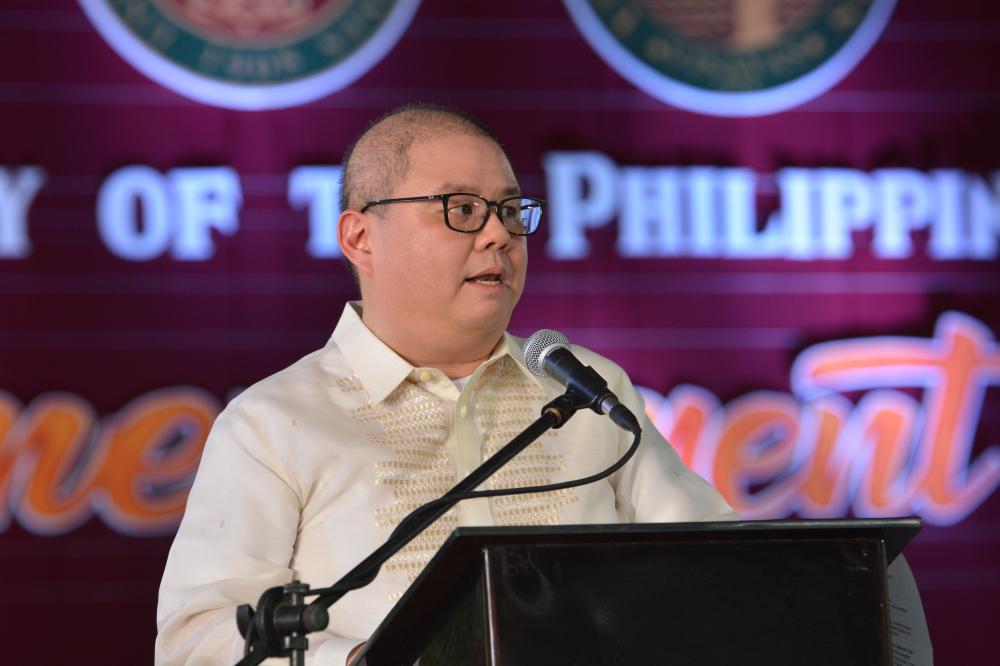
From Boardroom to Ballots: The Rise of Business Leaders in Politics
Exploring the motivations, challenges, successes, and lessons learned by business leaders as they transition from the private sector to public office.
By Claire Harbour and Antoine Tirard
In 2024, more voters than ever before will head to the polls in at least 64 countries, with over four billion individuals eligible to cast their ballots. This surge in political engagement is accompanied by rising disillusionment; trust in politicians has reached its lowest point in forty years, according to an IPSOS study. Given this context, one might wonder about the appeal of a political career.
Throughout history and perhaps more so in recent years, we’ve seen a number of business leaders making the leap from corporate boardrooms to the corridors of political power. Leaders like Herbert Hoover, Michael Bloomberg and Mitt Romney in the U.S, or Silvio Berlusconi and Emmanuel Macron in Europe come to mind. This transition, once considered rather rare, can now be seen as a valuable progression for some executives who seek to apply their strategic and leadership experience to the public sphere and demonstrate that the skills honed in running large organizations—such as delivering results, driving change, and aligning diverse stakeholders—are also highly valuable in government. However, this shift is far from seamless. Navigating the political landscape requires a different set of mindsets, competencies and responsibilities, including navigating bureaucracy, public accountability and addressing the needs of a broad electorate.
This article explores how business leaders manage this transition, the motivations behind their shift, and the lessons they learn along the way, as they move from steering companies to shaping national or international policy. Discover the inspiring journeys of Vania, Jean-Philippe, and Kiko, each of whom has successfully bridged the gap between business and politics, offering valuable insights and experiences that may resonate with your own aspirations.
From Microsoft to the European Parliament: Vânia’s unplanned political journey
Growing up in small-town Portugal, in a family of small business owners, Vânia benefitted from a deeply ingrained work ethic. Her summer jobs in her grandmother’s supermarket and café honed her people, communication and customer service skills, and instilled a sense of duty towards her colleagues and community. This foundation was further reinforced by a passion for teamwork as a member of a top basketball team.
After studying law, Vânia became disillusioned with courtroom corruption. An overseas study exchange sparked her love for international life, but also exposed her to racial bias, motivating her to join a political party and engage in student politics. She pursued a PhD, enjoyed teaching, and eventually became president of a youth political party, leading her to election as Deputy Mayor of Santarem.

Name: Vânia Neto
Country: Portugal
Business career: various education, skilling and product marketing roles at Microsoft
Political career: Member of the European Parliament
What she believes: « My commitment to gender equality and social justice remains strong. I know my political journey isn’t over, and I am determined to shape a more inclusive future.”
Three years of intense and full-time political service ensued, but while her desire to contribute was being satisfied, Vânia felt unchallenged. She turned down the invitation to go further politically, and chose to join Microsoft instead. For nearly fifteen years, she thrived in progressive roles, leading Microsoft’s skilling strategies in Western Europe, managing education partnerships and aligning training initiatives, while honing her diplomacy and ability to navigate a complex global organization.
Managing both big-picture strategy and detailed execution became second nature to Vânia during her years at Microsoft. This growth made her a more effective leader and an attractive candidate for other organizations. Her professional evolution also enhanced her ability to take on diverse challenges and opportunities, shaping her into a versatile leader.
Five years ago, Vânia was approached by her party to join the European Parliament election lists. Reluctant to commit fully, she accepted a low position, confident she wouldn’t need to serve. However, in early 2024, political shifts called her to step up as a Member of Parliament (MEP). With the support of her manager, who encouraged her to take on the role, she dove into the complexities of EU negotiations. Despite her legal background, the intricacies of international diplomacy and navigating conflicting interests among member states proved to be a new and demanding challenge.
Public speaking came easily to Vânia, having honed her communication skills as a child in her family’s café. But being recognized and accosted in the street was uncomfortable, and Vânia senses she will never be used to that. While adjusting to the spotlight, she leaned on her international experience and cultural adaptability to navigate the broad range of issues she now faced. Recognizing that teamwork was essential, she relied on colleagues to help prepare for the diverse subjects she was tasked with addressing.
Despite her adaptability, Vânia found certain aspects of her new role frustrating, particularly the slow pace and bureaucratic processes. She appreciates the “beauty of cross-border democracy” but still finds it tough to accept that decisions and legal conclusions may take many years to enact, compared to the immediacy of a corporate strategy, execution and measurable result. Vânia was handed a half-meter stack of paper for a single topic and requested a PDF instead, only to be repeatedly asked if she was sure. Though she found moments of humor in these challenges, she also appreciated the legacy values of the “founding fathers” – such as British punctuality and German rigor – that governed the institution’s work.
Vânia’s commitment to gender equality and social justice remains strong. She acknowledges that biases—whether gender or race-related—persist, and she is determined to address them. For now, she hopes to return to her corporate career, focusing on her pre-teen children while continuing to support gender balance initiatives within Microsoft and her political party. She knows her political journey isn’t over, and she remains committed to shaping a more inclusive future. Through her work, Vânia is helping to make lasting changes in both the corporate and political spheres.
From boardrooms to city halls: how Jean-Philippe found purpose in politics
Jean-Philippe grew up in a working-class suburb, as the only child of divorced parents, and trying to decipher society around him. He sought refuge in playing imaginative games, building and creating worlds of his own, where he could define the rules and play an important role. Education was his way out of this uninspiring context, and by the time he had clocked up degrees from top French schools, and got his first jobs at a large US IT corporation, and then in finance roles in the pharmaceutical industry, his modest origins no longer seemed to be visible, nor to matter.
Finance was the entry point, but Jean-Philippe eventually made it to general management roles across the globe, mainly for pharmaceutical giant Novartis and later for Ecolab. Despite the extensive travels and expat roles, he and his family maintained a base in Mulhouse, just over the French border from the corporate HQ.

Name: Jean-Philippe Bouillé
Country: France
Business career: finance and general management in global corporations in the pharmaceutical and chemical industries
Political career: Deputy Mayor of the City Hall of Mulhouse, Board Chairman of an urban public developer
What he believes: “I was keen on becoming a better person. My prolonged time in global business left me feeling unaligned with my values, and I wanted to make a meaningful impact.”
A few years ago, having achieved great success in his corporate career, Jean-Philippe noticed he was less excited about the next challenges that might emerge, and found himself on the quest for more purpose and impact in life. He decided it was time to get out, and build on that a geographical anchor in Mulhouse. A period of reflection of almost a year began. He had always had strong political convictions, and a sense of social justice, and so soon enough, Jean-Philippe ran for municipal elections and later became deputy Mayor. What better way to contribute to this city that had been his home for so long already, and possibly to put his business skills to the best use in this new world?
The transition was challenging as it dealt with unfamiliar subject matter, including legal, technical and regulatory issues. It was not just knowing the law, but being ready to get involved in contentious cases around planning permissions, and so on. However, Jean-Philippe had developed highly sophisticated skills in negotiation in his corporate career, so although the “content” aspect of his new world may have been unfamiliar, his ability to tackle seemingly intractable situations was unusually high.
Jean-Philippe’s management and leadership skills came to the fore in developing and navigating relationships with partners and developers while understanding everyone’s stakes.. However, he missed the support of colleagues and coaches from the world of business. He compares the learning he had to do with the process of entering into a dark room, where you don’t know anything is, and gradually feeling your way around until you begin to understand how to navigate. Despite the challenge, his experience with many transitions in his corporate career—from roles to countries—made him more adaptable than someone with less diverse experience.
One of the biggest challenges for Jean-Philippe has been returning to the mono-cultural world. After decades in multinational companies, his struggles range from needing to speak with much more precise and nuanced language to simply dealing with a more restricted segment of the population. However, he quickly recognizes their strong commitment to local development and steadily adapts to this new setting.
In terms of his identity, Jean Philippe explains that he was keen on becoming “a better person”. His prolonged time in global business left him feeling unaligned with his values, and his efforts have been mindful and sustained in this direction. On the other hand, he does not wish to become the caricature of a politician. In social settings, he describes his role in local government and as head of a public development company, focusing on serving the public interest rather than promoting himself or his corporate background.
When asked if he would return to the world of corporate, the answer is a resounding no. Though he does not exclude the possibility of being attracted to a local business at some point later on, where he could continue to bring his service without getting stuck back into the vicissitudes of big business.
A few years into his role, Jean-Philippe is leading significant projects at both city and regional levels, utilizing his strategic vision and financial expertise. He now feels more confident with his team and better supported overall. However, he is mindful of the political stakes in upcoming elections at various levels and is contemplating whether to take on a larger political role. While the future remains uncertain, Jean-Philippe has no regrets about transitioning to politics and appreciates the mayor’s focus on teamwork, though he recognizes their partnership may be temporary.
Jean-Philippe emphasized that he is committed to continuing to make a meaningful impact and leave a legacy that he and his family can be proud of.
From family business legacy to public impact: Kiko’s leadership journey
Pride in the family name was central to Kiko’s upbringing in the Philippines. As the oldest son of Filipino-Chinese parents who rose from rags to riches in the fishing industry, he began helping with accounts and listening to communications with fishermen before turning ten. Hard work defined his upbringing, with parental love shown through dedication to success rather than indulgence. An adventurer at heart, Kiko struggled academically and was failing by 17. His father issued an ultimatum: “get out, or come work for me.” Choosing to work, Kiko spent two years in Japan, learning engine mechanics and fish processing techniques, marking the start of his lifelong learning journey and ambitious career development.
By the early nineties, the exiled Marcos family returned to the Philippines, with crony Danding Cojuangco running for president in 1991. Filled with “hope for making a difference and creating change”, Kiko joined the campaign, alongside old friends, including his peer, BongBong Marcos. While the campaign was not successful, it was an exciting time for Kiko, sparking his desire to support and develop his home country with meaningful action rather than empty rhetoric, though he did not see his involvement as political.

Name: Francisco “Kiko” Tiu Laurel Jr.
Country: The Philippines
Business career: President of the Frabelle Fishing Corporation, a deep-sea fishing company operating in the Asia-Pacific region
Political career: Secretary of Agriculture
What he believes: “Get and keep a good reputation, as this helps things to come your way. Keep it honest and clean, work hard, and don’t make too many waves.”
During this time, Kiko’s career at the family firm, Frabelle, flourished despite many challenges. Through hard work, diversification, and smart strategies, he saved the fishing company and was appointed president, with his father stepping back. Over the next thirty years, Kiko expanded the business to nearly 70 entities. His curiosity and eagerness to learn enabled him to compete with giants like San Miguel in the hot dog market and explore various food ventures. Today, the Frabelle Group is one of the Philippines’ most respected businesses and a leading fishing company worldwide. Kiko has inspired his team and strategically prepared the next generation for leadership. Planning a sabbatical in 2023, a few years shy of 60, he felt proud of his contributions to farmers, fishermen, and his country, looking forward to more family time and a better work-life balance.
When his old friend BongBong Marcos ran for president in 2022, Kiko generously donated to the campaign but chose not to get involved further. He was delighted by Marcos’s victory but skipped the inauguration. A few months later, a mutual friend invited him to join the governmental advisory team on fisheries, which Kiko saw as the “perfect opportunity” to help his country while keeping his day job. This role allowed him to learn about commodities and issues where he lacked expertise, feeling more like personal development than politics. He thrived in collaboration with industry leaders and enjoyed monthly presidential meetings, where his voice and that of common stakeholders were more prominent than ever.
Before and after Kiko was formally invited for the third time to be the State Secretary for Agriculture, he was struck by the similarities between his corporate and political roles. His leadership skills, commitment to being close to the people, and ability to inspire through collaboration resonated in his new environment. Although he faced more bureaucracy, he worked on streamlining processes. Kiko frequently visited and listened to farmers and fishermen, driven by a strong desire to help his country develop and compete better. His four-year plan aims to modernize agriculture through technology and digitalization, focusing on mechanizing farm operations, expanding irrigation, enhancing logistics, and building post-harvest facilities. His business strengths are vital to this ambitious agenda, as a recent newspaper article noted: “He knows his math. He understands the supply chain. He has first-hand experience of the problems of the industry.”
But Kiko’s shift into politics was not without hesitation. Initially flattered by the interest, he and his parents worried about protecting their reputation and the family name, as Frabelle and the Tiu-Laurel legacy were built on honest business practices. They feared that the political “snake pit” could tarnish this. Ultimately, the president’s insistence and the promise of bringing in trusted, experienced people reassured him, leading Kiko to accept the role. He now leads the largest team of ranking officials in Filipino government history. His ability to inspire and manage a complex team comes more naturally to him than to many career politicians. Kiko has confidently made progress, using his strategic supply chain expertise to stabilize sugar and onion prices, famously noting, “today, nobody is crying because of onions.”
Will Kiko seek a second term? He says, “If invited back, I’ll probably agree,” but if not, he’ll happily return to his previous role, enjoying the pay increase. He hopes to establish a solid succession plan. His main driver now is to do good, and to make things better. His advice for those entering politics is to keep “do the right thing” top of mind. “Get and keep a good reputation, as this helps things to come your way. Keep it honest and clean, work hard, and don’t make too many waves”.
Bridging business and politics for positive change
Politics is inherently complex, and entering this field can take many forms. Today, there is concern about the prevalence of “career politicians” who often lack the experience and gravitas that come from diverse life paths. However, a compelling route exists between business and politics that allows for value creation and career development. While the necessary skills and mindsets in these areas may not fully overlap, there is enough synergy that transitioning between them can enhance both sides. Whether it’s streamlining bureaucracy with innovative approaches or encouraging industries to improve, these intersections hold significant potential for positive action. Given the disheartening political climate marked by war and conflict, any optimism for meaningful change certainly deserves attention and action. The flexibility demonstrated by our subjects suggests that more individuals than one might expect could consider this path. Ultimately, entering politics does not have to be a one-way trip; the ability to navigate both worlds can be cultivated and leveraged for the greater good.
Signs you might have something to contribute to the world, politically:
- A conviction for a better world: Inspired by personal experiences, like Vânia’s disillusionment with corruption or Kiko’s commitment to agriculture, a belief in positive change often motivates individuals to seek impactful opportunities.
- Desire to serve the greater good: Like Jean-Philippe, who shifted from a successful corporate career to deputy mayor, many find fulfillment in addressing local challenges and contributing to their communities.
- A big issue weighing on you: Issues such as gender equality and economic development may compel you to take action. Vânia’s dedication to gender equality and Kiko’s focus on sustainable practices highlight this drive.
- Willingness to tackle tough subjects: Politics involves confronting complex topics. Jean-Philippe’s adaptability in navigating legal issues exemplifies the resilience needed for effective political engagement.
If you get into politics, you might need to change or adapt your:
- Impatience with bureaucracy: Managing slow processes is vital. Vânia learned to cope with the lengthy decision-making in politics, contrasting it with corporate agility.
- Tolerance for legacy approaches: Adapting to established methods may be necessary. Kiko faced bureaucratic hurdles while seeking to streamline processes and improve efficiency.
- Fear of public engagement: Overcoming discomfort with visibility is essential. Vânia and Jean-Philippe both navigated public interactions, which required stepping out of their comfort zones.
- Concerns about reputation: Politics can involve treacherous environments. Kiko initially hesitated due to concerns about family reputation but found reassurance in his commitment to honest practices.
Sign up
Sign up to receive regular insightful news and advice on managing your career and receive a free gift. Inspiration delivered straight to your Inbox!
